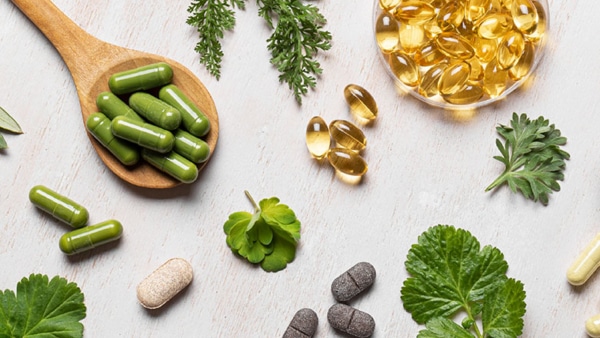Treating Your Overactive Bladder with Diet and Supplements

Overactive bladder, also called OAB, is characterized by frequent and sudden urges to urinate. The urge may be difficult to control. You may feel like you need to pass urine many times during the day and night. You may also experience leakage from time to time.
OAB can really impact your quality of life.
Supplements and certain foods have been shown to provide relief in some OAB sufferers. The National Association of Continence provides the following recommendations:
- Vitamin D: Vitamin D is known to help with bone health, as well as the immune system, heart health, blood sugar levels, and mood regulation. Studies have also found that vitamin D deficiency is associated with a higher risk of pelvic floor disorders. In one study of older women, the risk of developing urinary incontinence was 45% lower among those with normal vitamin D levels.
Sun exposure is the best way to get most of the vitamin D you need. - Magnesium: Magnesium helps your body by lowering high blood pressure, regulating mood, and helping to guard against Type 2 diabetes. It also ensures our muscles and nerves function properly. Some experts believe it may help improve incontinence symptoms by reducing bladder muscle spasms and allowing the bladder to empty. Good sources of magnesium: bananas, avocados, black beans, cooked quinoa, certain fish, dark leafy greens, nuts, and seeds.
- Vitamin C found in foods: A study of more than 2,000 women between ages 30 and 79 found that high-dose intake of vitamin C and calcium supplements may cause problems with your ability to store urine. And it could cause leakage or incontinence when taken in supplements. However, when vitamin C was consumed from foods and beverages, the women had an overall decrease in their overactive bladder symptoms. If you suffer from OAB, consider boosting your intake of the following:
For Good Bladder Health, Add These to Your Die
- Citrus drinks and foods that have a low acid content: bananas, figs, watermelon, papaya, mango, honeydew melon, cantaloupe, avocado
- Green vegetables
- Red, yellow, green bell peppers
- Cauliflower
- Carrots
- Red cabbage
- Multi-grain bread
- Quinoa
- Couscous
Avoid These Which can Irritate Your Bladder
Some drinks can irritate your bladder. Your doctor may suggest avoiding:
- Drinks containing citrus and high acidity content, like pineapple, orange, grapefruit, and tomato juice
- Caffeine
- Alcohol because it acts as a diuretic and can increase the chance of nighttime urges
- Dairy
- Carbonated drinks like soda
These foods are associated with bladder irritation. It may be helpful to avoid:
- Citrus like pineapple, oranges, tomato, and grapefruit
- Cranberries
- Spicy foods
- Monosodium glutamate (MSG) often found in deli meats, canned soup and vegetables, and restaurant meals.
- Raw onions
- Dairy cheeses and milk
- Artificial sweeteners
- Processed foods with preservatives to extend their shelf life.
Learn more about exercises, medications, and other treatment options for OAB.

